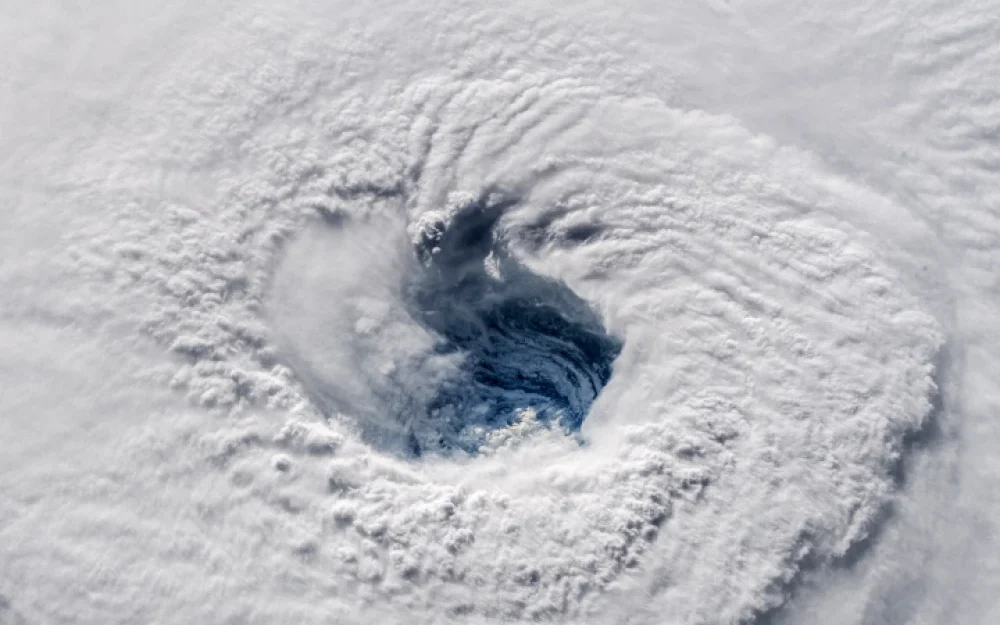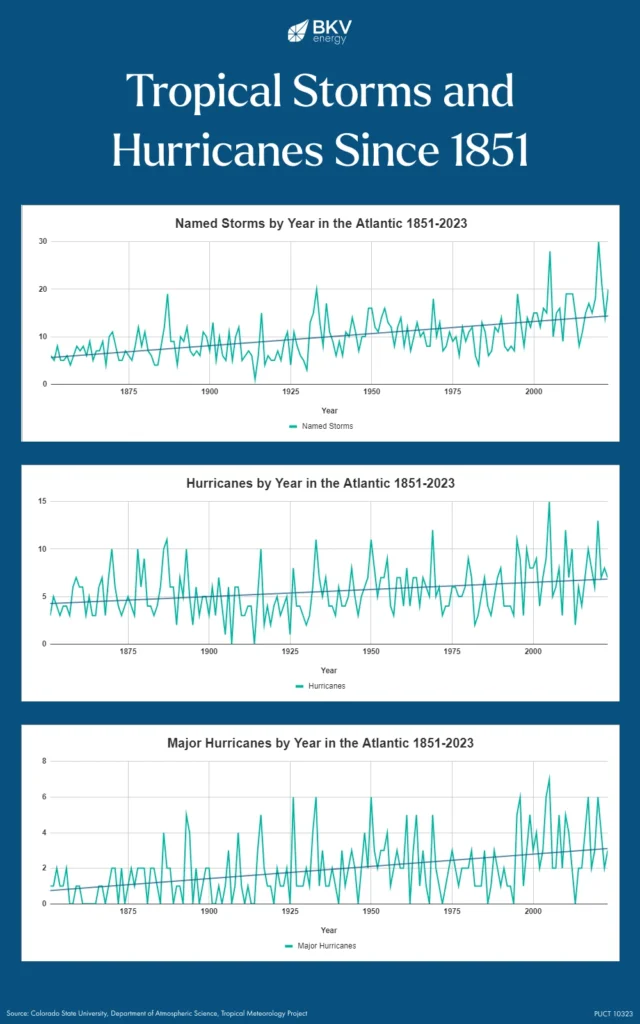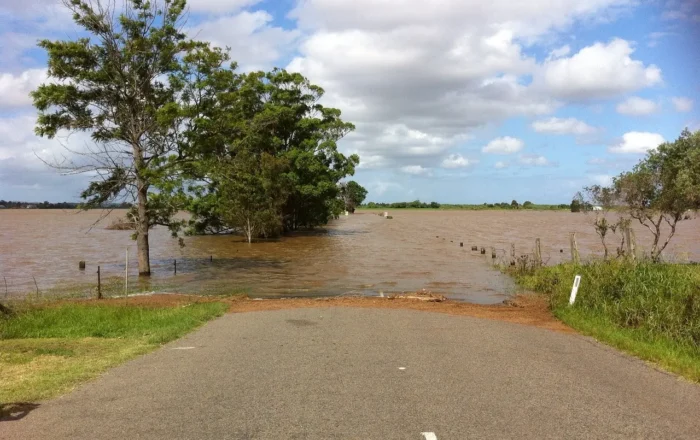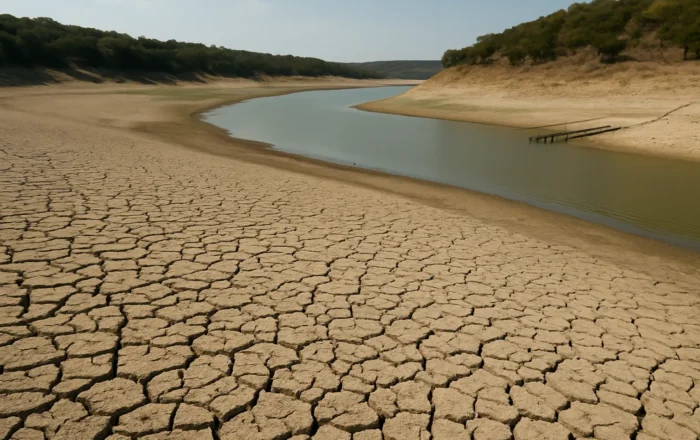What Causes Floods in Texas?
4 minute readFlooding in Texas is driven by heavy rain, hurricanes, rivers, and rapid urban growth, making it one of the most flood-prone states in the nation.
Home > BKV Energy Blog > All Posts > Are Hurricanes Getting Stronger?
How climate change is intensifying hurricanes, leading to stronger winds, heavier rainfall, and increased destruction.
5 minute read • Last update July 2025

Are hurricanes getting stronger? Scientific evidence increasingly suggests that climate change is contributing to more intense and destructive hurricanes. This article delves into the factors driving this trend.
According to NASA, climate researchers and scientists, and weather experts across the globe, hurricanes are growing stronger in the last 40 years. In this time period, the incidence of named storms (including tropical storms and hurricanes), hurricanes, and major hurricanes has increased in comparison to previous decades.
Additionally, weather data going back to the mid-1800s shows that storms in the Atlantic basin are growing more common and more likely to develop into major hurricanes characterized as category 3, 4 or 5 storms.

However, it’s worth noting that in the 1800s and part of the early 1900s, our ability to measure the strength and the quantity of hurricanes each season was much weaker than today. It’s very likely that data from before the 1950s is incomplete and would not be a reliable source of information to determine longer term trends surrounding storms that develop in the tropical Atlantic.
As technology has improved with better measuring instruments, as well as the ability to monitor and track the progression of every storm from space, both the quantity and quality of our data on the frequency and strength of hurricanes in the Atlantic basin has advanced drastically.
Hurricanes form as a result of the combination of several factors:
Many studies suggest that anthropogenic (human-caused) climate change or global warming may be the source of the increase in hurricane frequency and intensity since the 1980s.
As human activity has led to more and more greenhouse gases released into the atmosphere, ocean temperatures have increased. As already mentioned, hurricanes require warm seas to develop. And the warmer the water, the higher the chance that a storm can develop into a major hurricane.
The other issue commonly cited is sea level rise. The main sources of sea level rise are also a result of global warming:
As ocean levels continue to rise, this can lead to more devastation when a hurricane does make landfall. When a hurricane reaches the land, it brings a storm surge with it. A storm surge is abnormally high level of water (above predicted tides) brought by tropical storms and hurricanes. With higher ocean levels, storm surges increase in intensity, causing more damage and destruction from the flooding.
Does data support the claim that human activity is directly making hurricanes worse? Let’s dig in further.
If human activity releasing more greenhouse gases has caused global temperatures to rise, it might seem obvious that anthropogenic climate change would also be responsible for more hurricanes and more hurricanes that reach category 3, 4, or 5.
Many studies project that increased temperatures will make hurricanes more frequent and increase the proportion that develop into major hurricanes, but historical data makes it difficult to say for certain that human activity is the cause of the reported increase in hurricane activity since the 1980s.
Thomas Knutson, senior scientist at the Geophysical Fluid Dynamics Laboratory (GFDL) of the National Oceanic and Atmospheric Association (NOAA), has analyzed many scientific studies of global warming and Atlantic hurricane activity and came to the conclusion that “historical Atlantic hurricane data at this stage do not provide compelling evidence for a substantial greenhouse warming-induced century-scale increase in: frequency of tropical storms, hurricanes, or major hurricanes, or in the proportion of hurricanes that become major hurricanes.”
This, however, does not necessarily mean that human activity is not the cause of or will not cause more frequent and stronger hurricanes. What it means is that the available data on global warming and hurricanes doesn’t prove the assertion. It’s possible that if we had more data of a higher quality going back the last couple centuries, the team at the GFDL may have come to a different conclusion. In their report they state “more research is needed for more confident conclusions.”
The scientists at the NOAA were able to state some conclusions more confidently:
As global temperatures continue to rise, the future of hurricanes remains a critical area of concern for climate scientists and coastal communities alike. Warmer ocean waters—one of the primary drivers of hurricane intensity—are expected to create conditions that could support stronger, more destructive storms.
While the overall frequency of hurricanes may not significantly increase, research suggests we are likely to see a higher proportion of intense Category 4 and 5 storms. These stronger hurricanes are more capable of causing catastrophic damage to infrastructure and endangering lives.
Advances in climate modeling also indicate that storms may bring heavier rainfall and pose greater flood risks, particularly in densely populated coastal regions. The compounding effects of sea level rise and extreme precipitation events will likely exacerbate the threat.
Understanding these trends is essential for improving infrastructure resilience, updating emergency response strategies, and guiding long-term climate policy. Proactive planning based on emerging science will be key to mitigating future impacts.
So, are hurricanes getting stronger? Are stronger hurricanes a result of human activity releasing more greenhouse gases into the atmosphere? The real is answer is scientists are not yet 100% sure.
When analyzing storm data since the 1980s, it seems clear that there are more hurricanes and more dangerous hurricanes. However, when taking a closer look at data going back to the 1800s, things become less clear.
Leading experts in the field have a hard time saying with certainty that the data proves these assertions that hurricanes are becoming stronger and more frequent. Here’s what to take away from this article:
As the next hurricane season approaches, it’s important to think about who you trust to provide your home’s electricity. At BKV Energy, our plans are affordable, simple, and transparent. We approach hurricane season in a similar way to the way we design our electricity plans.
We rely on real science and data. You won’t receive any typical media “doom and gloom” from us, just honesty and accuracy. We’re prepared to offer support to our customers before, during, and after any potential natural disaster, all while providing electricity at an affordable rate. Enter your zip code to explore plans in your area and discover the huge benefits of the Bluebonnet plan.
Graham Lumley, Digital Marketing Manager at BKV Energy, leads digital and traditional marketing strategies, focusing on educating Texans about the state's deregulated energy market. With over 8 years of marketing experience, he creates content to help consumers understand and save on their energy bills, bringing a fresh and dynamic approach to the industry.

Flooding in Texas is driven by heavy rain, hurricanes, rivers, and rapid urban growth, making it one of the most flood-prone states in the nation.

Texas has faced decades of drought cycles, but is the state still in a drought today?
Get $50 off your electric bill!
Use code BKVEJOINUS50
Enter your zip code to shop BKV Energy's affordable, fixed-rate Texas electricity plans. Use the promo code for $50 off your electric bill.